Engine Knocking When Accelerating – Causes and Solutions
Engine Knocking When Accelerating, Are you constantly hearing knock or ping sounds when you accelerate? It’s probably your engine giving off hints about some issues that need your immediate attention under the hood.
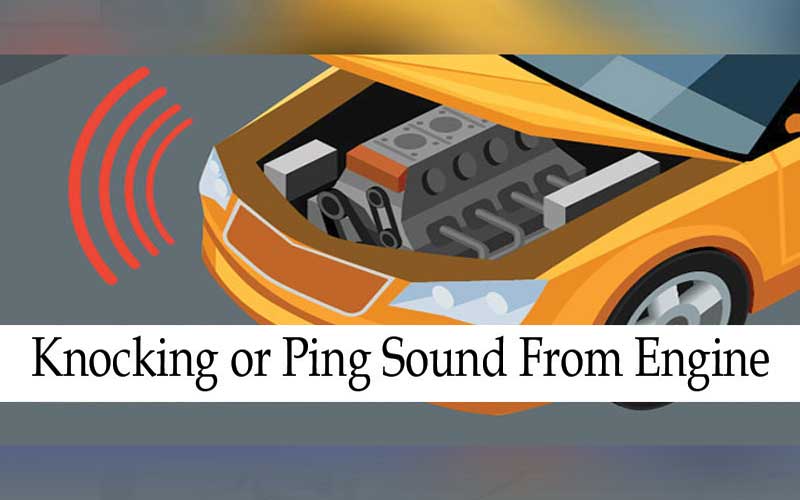
Although there are many other objects that can generate these kinds of noises, its best to bring your car around for a quick check-up, no matter what the issue is at the end.
In this article, we will take a close look at the types, causes, and what you can do in a situation of engine knocking.
So, you don’t miss out on anything important.
Engine and the way it works
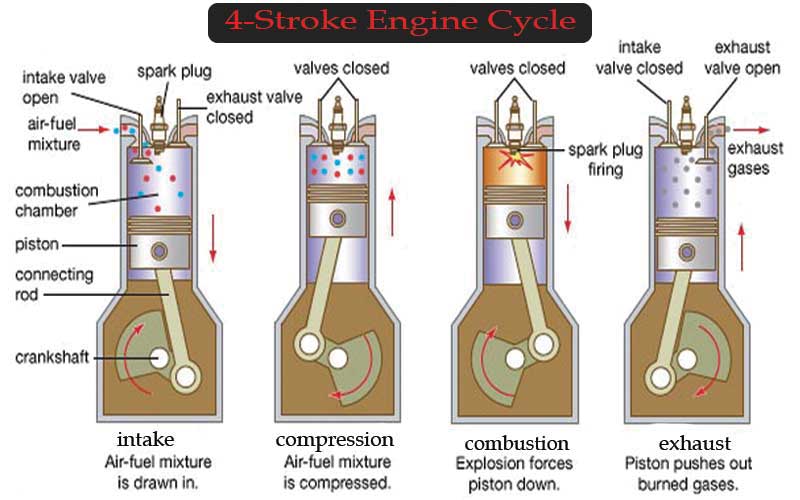
Before jumping into engine knocking and its components, let’s learn about what engine is itself first. An engine is a complex machine that is structured to convert burning gas into heat, which works as the food of your car.
The engine is known as the heart of the car since it takes care of the food and intake of your car.
Generally, a car engine uses a four-stroke combustion cycle. Those four strokes include
• Intake
During intake, the valve opens, and the piston moves downwards, this cycle begins when the air and gas are bought together.
• Compression
The piston moves upwards again in compressions pushing air and gas into a smaller area which means a strong explosion
• Combustion
In combustion, the spark plugs come together and create a spark which first ignites then explodes, by the power of this explosion, the piston is forced back down.
• Exhaust
The cycle ends after exhaust as it is the last part; in it, the exhaust valve’s opens and releases gas waste that was created by the explosion.
This is then shifted to the catalytic converter, where it is renewed and pushed thru the muffler. Lastly, it exits the vehicle through the tailpipe.
Types
There are two main types of engine knocks which are then classified into more types, I have listed five types of engine knocking down below that usually occur in a vehicle.
- Rod knock: Worn Bearings Detonation knock: Bad Knock Sensor
- Detonation knock: Lean Air/Fuel Mixture
- Detonation Knock: Bad Timing
- Detonation Knock: Too Low Octane
- Bad Belt Tensioners/Pulleys
Causes
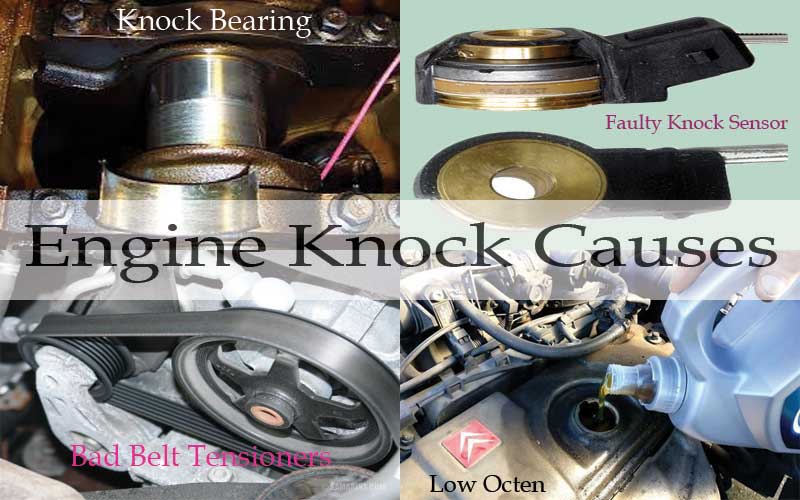
Determining the origin of engine knock can be a little problematic. To help you get on with it, we’ve listed some of the most common causes of engine knocking down below.
So, you can get a closer look at what can trigger an engine knock.
Fuel mixture / Lean Air
A fuel mixture or Lean air knock is called a detonation knock. It occurs when the engine has too much air or does not have enough fuel.
Now without sufficient fuel in each cylinder, the mixture would be unable to move fast, which will result in multiple denotations, and that’s called an engine knock.
Lean air or fuel mixture is born in the engine when oxygen sensors, fuel pumps, fuel injectors, or mass airflow sensors are facing problems of any kind.
Worn out bearings
Rod knocking is a major symptom of worn-out bearings. It occurs when, as a result of bearing wear, the surplus clearances cause the big-end of the rods to strike against the crankshaft at both the bottom and the top of the piston stroke.
Most of the time, when a bearing is starting to fail or has failed, you will observe an indication of low oil pressure.
Read Also: Tom Ogle Engine Information, MPG
Carbon build-up
Carbon can build upon many elements of the engine of your vehicle, which includes carbon build up in the combustion chamber, which can result in engine knocking.
Although not to worry as this ought to be a comparatively easy fix, as there are tools like fuel injector cleaners that can help in breaking down of carbon deposits in your engine.
Faulty knock sensor
Knock sensors are actually very helpful and important when working the right way. They are made to sense vibrations that are made by engine knocking and then turn them into electrical voltage signals.
A faulty knock sensor can actually give out false signals, which can actually cause knocking as it may sense a false knocking vibration that isn’t even there in the first place.
The signs of a faulty sensor are reduced in the fuel system, acceleration slowed down, and then turning on of check engine light.
Faulty spark plug / Bad timing
Extracting heat from the combustion chamber, the spark plugs run on a specific and precise heat range.
Engine knock can be caused by too narrow or too wide spark plugs. If you recently changed your spark plugs are hearing any kind of knocking sounds, chances are your new spark plugs are incorrect and need to change immediately.
Spark plugs are known to cause knocking in the engine when the gap between them is incorrect, which causes the spark plugs to ignite the air-fuel mixture at the wrong time, which results in knocking.
Pulleys/ Bad belt Tensioners
Many times, the knocking or slapping sound coming from the accessory belt is mistaken as engine knocking sounds.
When the engine runs, it turns a belt that is joined to many pulleys, now this belt must be under the exact amount of tension so that it can run quietly and smoothly.
The tensioner would not work properly if the belt becomes stretched out, or it will cause the pulleys to bend out of shape. When this happens, you will hear sounds like rattling, slapping, and clicking, which is mistaken for an engine knock.
Fortunately, fixing a bad belt tensioner is as easy as adjusting the tension, replacing a bad tensioner or accessory pulley.
Read Also: Why Gas is Getting Into the Oil
Too low octane
High octane fuel burns more efficiently and uniformly and has the ability to resist knocks.
Now, if your car has an engine that is designed and rated for high octane fuel, you can experience engine knocking when you put in too low octane fuel.
So, if you recently changed your car fuel and hear a knocking, it’s a safe bet to say your car does not function on low octane fuel.
But before that, make sure you go through your car’s owner’s manual and find out what octane rating is best suited for your car.
Engine Overheating
One of the focal reasons for engine knocking is engine overheating. Overheating, most of the time is caused by a leak in engine coolant, which can further lead to knocking sounds and noises, resulting in an engine knock.
When an engine starts to overheat, the aluminium material found in it begins to smell, expand, warp, or even crack. Now a warped cylinder could be separated from the engine block, which ends up producing a leak in the head of the gasket, and that leak can later cause your engine to start burning the coolant and the oil.
To avoid any kind of engine overheating, make sure you keep checking the temperature of your engine, every once in a while.
Read Also: 10 Best Coilovers for Daily Driving
Damage engine knocking does to your engine
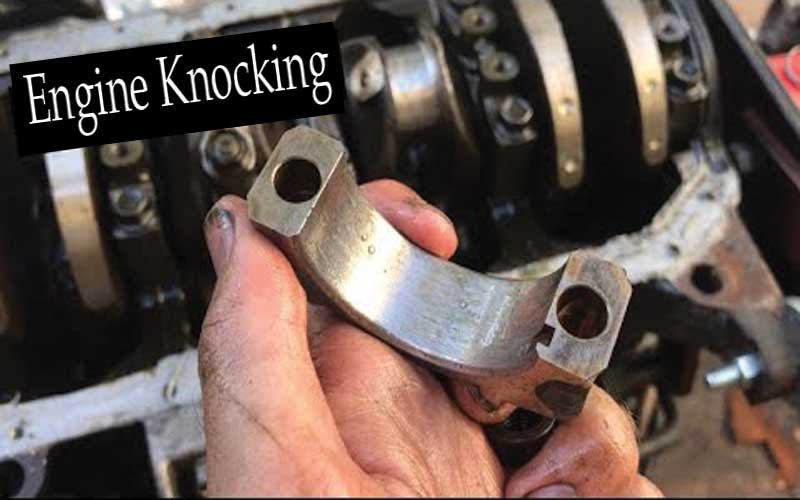
Engine knocking can result in loud noise when accelerating and serious potential damage to the cylinder walls and pistons of your engine. Not only that, but it can also reduce the efficiency and life of your engine.
To avoid any consequential damage to your engine, you need to observe and diagnose any kind of sound or clicking and correct it.
Since any kind of sound of knocking that is ignored for a long period of time can cause damage to the engine in more than one way.
How to stop engine knocking?
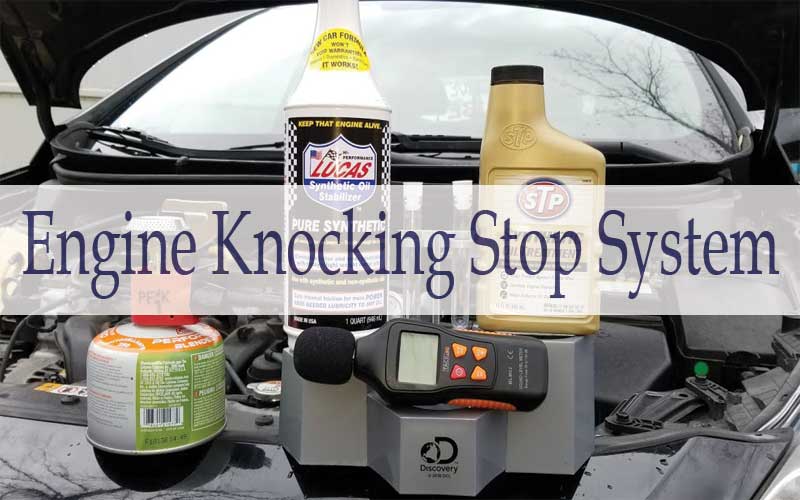
I’m sure by now; you are fully aware of what an engine knocking, what triggers it, and how many types of engine knocking are possible.
Now let’s take a look at some remedies on how to stop your engine from knocking.
- Keep a check on engine’s temperature
- Increase fuel octane level
- Keep your combustion chamber clean.
- Change spark plugs when required
- Regular engine check-up
Read Also: V6 VS V8 Car Engine
Precautions to take in future
Keep in mind that when you are taking care of the engine of your car, you are actually taking care of the heart of the car.
To avoid engine knocking in the future, you have to keep some important rules in mind, so that your car engine stays safe and protected.
Here are some ways that can help you protect your car and its engine.
• Regular Oil Changes
• Proper cooling system
• Change the Air filter every now and then
• Check engine light regularly
• Change fuel filter
Final Thoughts
Now that we have reached the end of the article, I can optimistically say that you now know a lot about engine knocking and its mechanism. Which now makes you less likely to ever experience it anymore.
Yet if you still have some questions or if you are unsure about some of the points written on here, I highly suggest you take time out and read this article thoroughly again.
As we have covered everything about engine knocking from top to bottom that includes, causes of knocking to types of knocks and things that trigger the knocks, prevention of knocking, and safety precautions for the future.
It would be a piece of cake for you to now take care of your engine and keep it in good condition.
Share this content:
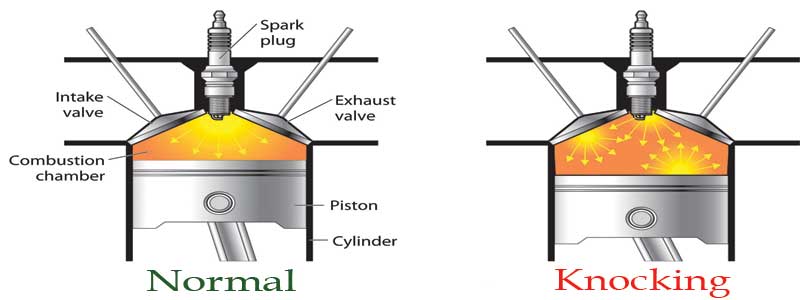





Post Comment